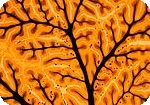| Tuesday, 13 May 2025 Home • About Us • Contact Us |
|
|
|
You are here:
Sleep rejuvenates both the body and the mind and is an essential way of resting, recharging and nourishing the body and brain. Without adequate sleep, even for one night, the body shows clear signs of stress, with changes in mood and concentration, a drop in levels of vital nutrients such as zinc and magnesium, and with Vitamin C used up at an alarming rate.
Many people have problems getting to sleep, staying asleep or getting enough sleep. Although insomnia can be the result of numerous factors, it is also very much affected by what you eat. Here are some natural ways to improve your sleep through better nutrition. Stress, sugar and stimulants keep you awake The body depends on certain hormonal patterns, body chemicals and nutrients to keep it balanced and functioning properly, for example, at night time the levels of the stress hormone cortisol should dip, calming the body and preparing it for sleep. However, if cortisol levels are out of sync (usually due to stress or a diet high in sugar and stimulants), then your ability to get to sleep or stay asleep is impaired. Caffeine is another well known sleep disrupter. When you go to sleep, levels of the hormone melatonin- which is secreted by our pineal glands in response to darkness - increase. Research shows that coffee drinkers have half the amount of melatonin produced, and one study showed that regular coffee drinkers slept for an average of two hours less. [1] To ensure a restful sleep, keeping blood sugar levels balanced throughout the day is important. This means eating regular meals, including some protein-rich food in your diet, avoiding refined foods, coffee, sugary foods and drinks, especially right before you go to sleep. Balance the sleep neurotransmitters serotonin and melatonin During the daytime, levels of the hormone adrenalin are high and keep the body stimulated, but these levels drop as you start to wind down, and serotonin and melatonin levels rise. Without enough serotonin, the body doesn't make enough melatonin, and as this chemical's main role in the brain is to regulate the sleep/wake cycle, this makes it difficult for the body to get to sleep or stay asleep. Both of these hormones are made from the amino acid tryptophan, and to avoid a deficiency in these essential brain chemicals, ensure you have adequate amounts of B6 and tryptophan in your diet. Foods that are particularly high in typtophan are chicken, cheese, tuna, eggs, tofu, nuts, seeds and milk. Balance your calming nutrients A lack of the minerals calcium and magnesium can trigger or exacerbate sleep difficulties because they work together to calm the body and help relax nerves and muscles. Your magnesium levels may well be low if you are stressed or consume too much sugar. Magnesium-rich foods include seeds, nuts, green vegetables, wholegrains and seafood. Good sources of calcium are milk products, green vegetables and nuts. Another important sleep nutrient is GABA (gamma-amino-butyric acid). This is a neurotransmitter and amino acid that acts as the brain's peacemaker, helping to turn off excess adrenalin and calm you down. Studies have associated having enough GABA in the brain with being relaxed and happy, while having too little is associated with tension, depression and insomnia [2]. Because GABA is a nutrient, it can be supplemented through diet, and it is abundant in all protein foods, but the best food sources are fish (especially mackerel) and wheat bran. Natural sleep aids Taking drugs for sleeping problems and anxiety is generally not advisable as medicinal sedatives are usually addictive, and taking them regularly means your tolerance increases, making higher and higher doses necessary for any effect. They also have a range of unpleasant side-effects and are strong chemicals which need to be detoxified by the body, placing a burden on your liver. There are many natural substances which can help you sleep, but like medicinal sleeping aids, should only be used as a last resort and only used occasionally. These include the herbs valerian, hops, passion flower, St John's wort or a 'sleep formula' combining several of them. These herbs have natural sedative effects and St John's wort in particular has both serotonin and melatonin-enhancing effects, making it an effective sleep regulator. The positive effects of these herbs on aiding sleep are well substantiated in many studies, a few are given below. References
Link to this article: Show: HTML Link • Full Link • Short Link
Related Articles:
You must be registered and logged in to comment. |
|
 |
 | |
|
|








